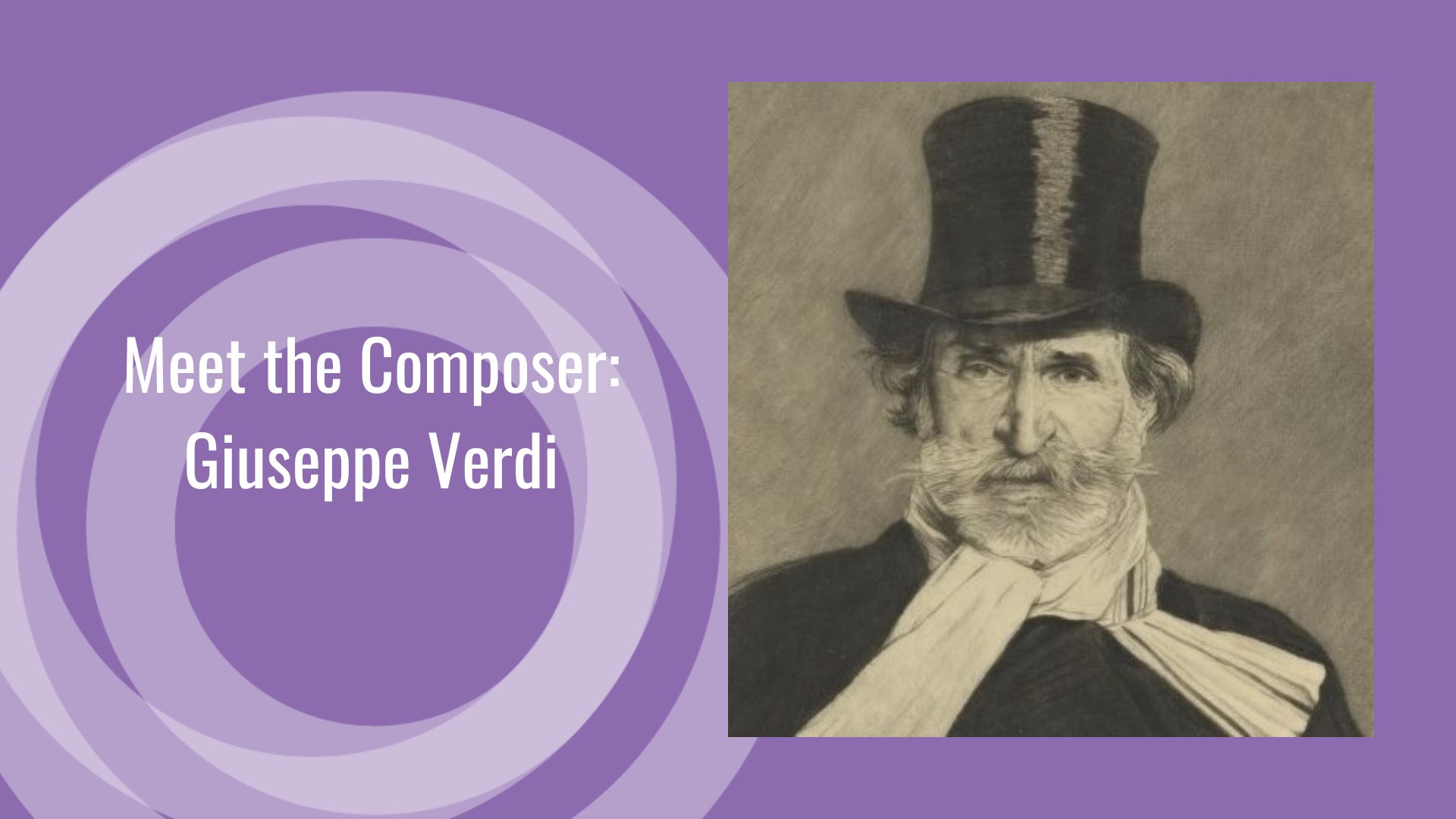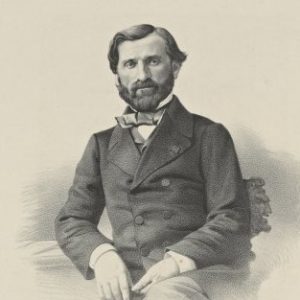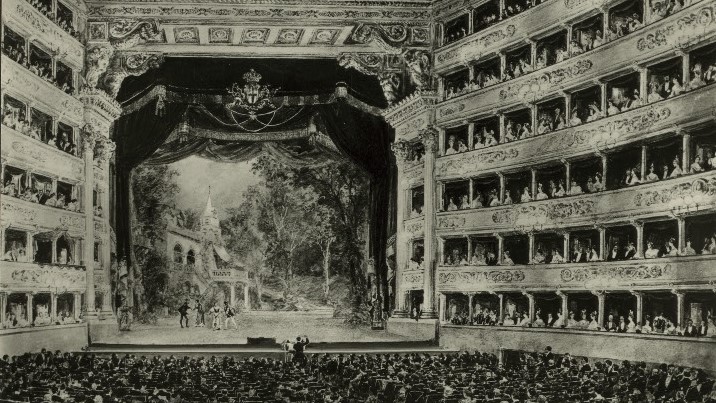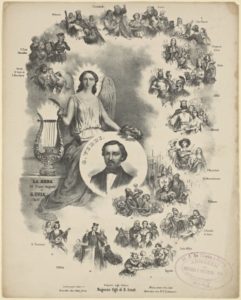Meet the Composer: Giuseppe Verdi

By: Bethany Wood
“I adored and I adore this art; and when I am alone and am wrestling with my notes, then my heart pounds, tears stream from my eyes, and the emotions and pleasures are beyond description.”
— Composer Giuseppe Verdi writing to librettist Francesco Maria Piave, 1860
Experience Verdi’s Rigoletto November 5-13. Tickets are on sale now, starting at just $39>>
Verdi’s Childhood Musical Success
Today, musicians, producers, and audiences recognize Guiseppe Verdi as one of the most influential composers in opera. Although extremely talented, Verdi experienced many disappointments on his path to fame.
Born in 1813 near Busseto, Italy, Verdi was enthralled with music at a young age, fascinated alike by tunes from the passing organ grinder and church music. Verdi’s parents worked hard operating an inn and tavern—supporting their son’s interest in music, even giving him a spinet, a type of small harpsichord, which Verdi often played late into the night. He also played the organ at church, becoming the part-time organist at San Michele Arcangelo at the age of ten!
By this time, Verdi’s impressive musical talent earned him the patronage of Antonio Barezzi, a local merchant who contributed to his community by sponsoring the studies of young musicians.
Verdi—The Young Composer

Source: New York Public Library
In 1825, at the age of twelve, Verdi enrolled in a music school run by the librettist and composer Ferdinando Provesi, who taught him piano and composition. As a teenager, Verdi composed numerous pieces in various styles, marches, church music, theatre pieces, concerti, cantatas, etc. At the age of eighteen, Verdi applied for admission to the Imperial Royal Conservatory for Music in Milan. His parents, mentors, and sponsors wrote letters of support, and Verdi performed well at his audition. Despite Verdi’s hard work and talent, the men in charge of admissions felt he was too old to become a great musician, and one admissions official stated that Verdi “would turn out to be a mediocrity.”
Verdi was deeply disappointed, but he did not give up. Instead of returning home, he requested funds from his sponsors and stayed in Milan.
Undeterred by Rejection
Verdi decided to take private music lessons with Vincenzo Lavigna, who had served as maestro al cembalo (master of the harpsichord, the opera’s conductor) at the Teatro alla Scala, the most famous opera house in Italy.
Verdi left his studies abruptly to return home to Busseto, where he expected to receive an appointment as maestro di cappella and organist for the vestry of San Bartolomeo, a prestigious and well-paid job. The church, however, had other plans, and Verdi was once again disappointed. Ever resilient, Verdi found work conducting the local Philharmonic.

Source: New York Public Library
Verdi’s Operas Hit the Stage

Source: New York Public Library
In 1836, Verdi married Margherita Barezzi, his patron’s daughter. The couple soon moved to Milan, where they hoped a theatre would produce Verdi’s newly-finished opera. When no one in Milan seemed interested, Verdi tried to sell the idea to theatre managers in Parma, but to no avail. Finally, the manager of La Scala accepted Oberto for production, and, in 1839, Verdi’s first opera received a prestigious debut.
His next opera, Nabucco, premiered at La Scala in 1842 and established Verdi as the foremost composer of Italian opera in his day. Numerous operas followed, including Ernani (1844), based on a play by Victor Hugo and written with the librettist Francesco Maria Piave.
Verdi’s most famous works include Rigoletto (1851)—another adaptation of a Victor Hugo play with the librettist Francesco Maria Piave, La Traviata (1853), Aïda (1871), Otello (1887), and Falstaff (1893). Worldwide, the 2022-23 opera season will see 350 productions of Verdi’s works, bringing his music to audiences across the globe in over 1,900 performances.
Experience Verdi’s Rigoletto November 5-13. Tickets are on sale now, starting at just $39>>
—
Which Verdi opera is your favorite? Did you know his wife was his patron’s daughter? Would you like to learn more about his political connection? Let us know in the comments below!

Thanks for the additional information of Verdi life I didn’t know. That was special !